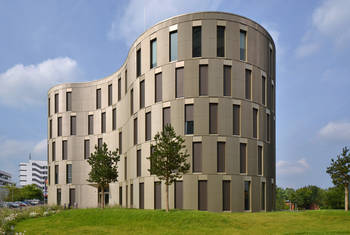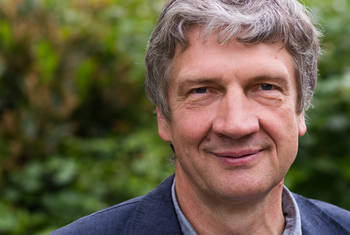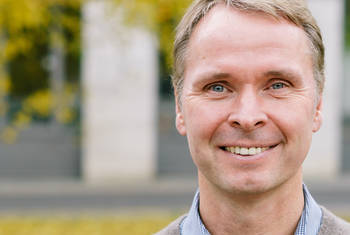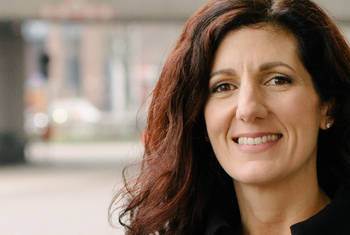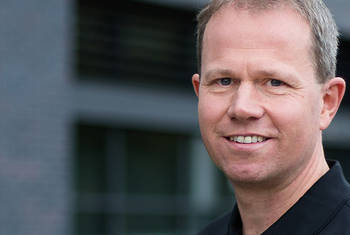Thomas Bosch What Can the Origins of Multicellular Life Teach Us About How Bodies Function?
Professor Thomas Bosch is Director of the Kiel Life Science (KLS) Interdisciplinary Research Center at Kiel University. A Senior Fellow of the Canadian Institute for Advanced Research (CIFAR), Bosch also leads the German Science Foundation’s “Origin and Function of Metaorganisms” Collaborative Research Center. His research interests include the individual as metaorganism, stem cells and ageing and evolutionary immunology. Editor in Chief of Zoology, Bosch was awarded an honorary doctorate from St. Petersburg State University in 2004.
Area of Research
Cell and Developmental Biology
since 2013
Head/Director
Kiel University (Christian Albrechts Universität zu Kiel) (more details)
Interdisciplinary Research Center « Kiel Life Science » (KLS)
since 2000
Professor (C4) „Allgemeine Zoologie“
Kiel University (Christian Albrechts Universität zu Kiel) (more details)
2010-2013
1997-1999
Professor (C3) „Spezielle Zoologie“
Friedrich Schiller University Jena (Friedrich-Schiller-Universität Jena)
1993-1997
Junior Faculty (Oberassistent, Privatdozent C2)
Ludwig Maximilian University Munich (Ludwig-Maximilians-Universität München)
Zoological Institute
1993
Habilitation in Zoology
Ludwig Maximilian University Munich (Ludwig-Maximilians-Universität München)
1988-1993
Research Assistant
Ludwig Maximilian University Munich (Ludwig-Maximilians-Universität München)
Zoological Institute
1986-1988
Post-Doc (Feodor Lynen fellow of Alexander-von-Humboldt Foundation)
University of California, Irvine
Developmental Biology Center
1983-1986
Doctoral Student
Ludwig Maximilian University Munich (Ludwig-Maximilians-Universität München)
Zoological Institute
1976-1983
Study of Biology
Ludwig Maximilian University Munich (Ludwig-Maximilians-Universität München)
and University College Swansea, UK
- Deputy President Deutsche Zoologische Gesellschaft (DZG) (2015/2017)
- President Deutsche Gesellschaft für Entwicklungsbiologie (GfE) (2016/2018)
- Vice President Deutsche Gesellschaft für Entwicklungsbiologie (GfE) (2014/2015)
Fellowships
- Senior Fellow, Canadian Institute for Advanced Research (CIFAR) (since 2016)
- Senior Fellow, Canadian Institute for Advanced Research (CIFAR) (2016-2020)
- Fellow, Wissenschaftskolleg zu Berlin (2018/2019)
- Feodor Lynen Fellowship (Alexander-von-Humboldt Foundation) (1986)
Prizes
- Koshland Lecture Award, University of Chicago, USA (2014)
- Doctor „honoris causa“ St. Petersburg State University, Russia (2004)
- Honorary Professorship State University St. Petersburg, Russia (1998)
- Collaborative Research Center CRC 1182 (SFB 1182) “Origins and Functions of Metaorganisms” (2016-2019). Principal Investigator (projects A4, C1, Z1) and Coordinator
- DFG Exzellenzcluster „Inflammation at Interfaces“ (2015 – 2017), „FoxO factors as key regulators of epithelial homeostasis and the host-microbiome crosstalk“; Main applicant
- DFG Exzellenzcluster „Inflammation at Interfaces“ (2015 – 2017) „Control of inflammation by regulated necrosis from Hydra to man“, Co-applicant
- DFG Normalverfahren Sachbeihilfe (Bo 848/17-2) (2014-2017) “Epitheliale Abwehr in Hydra"
- DFG Normalverfahren Sachbeihilfe (Bo 848/15-3) (2014-2017) “Charakterisierung des Insulin/FoxO-Signalweges in stammzellen von Hydra zur Beantwortung der Frage wie Stammzellpopulationen in einem basalen Vielzeller auf externe Signale und den Stoffwechselumsatz reagieren
- etc.
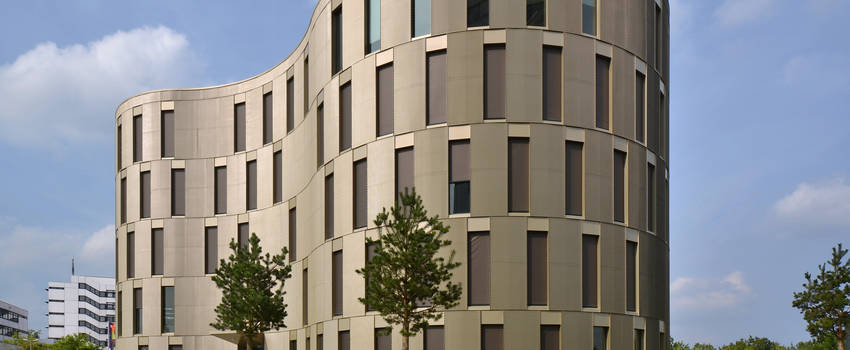 © Kiel University
© Kiel University

Collaborative Research Center 1182 „Origin and Function of Metaorganisms“ (Kiel University)
Kiel, GermanyFrom protists to humans, all animals and plants are inhabited by microbial organisms. There is an increasing appreciation that these resident microbes influence fitness of their plant and animal hosts, ultimately forming a metaorganism consisting of a uni- or multicellular host and a community of associated microorganisms.
Research on host-microbe interactions has become an emerging cross-disciplinary field. In both vertebrates as well as invertebrates a complex microbiome confers immunological, metabolic and behavioural benefits; its disturbance can contribute to the development of disease states. However, the molecular and cellular mechanisms controlling interactions within the metaorganisms are poorly understood and many key interactions between the associated organisms remain unknown.
The CRC 1182 at Kiel University adresses theses questions particularly by investigating:
· the specific functional consequences of the interactions,
· the underlying regulatory principles,
· the resulting impact on host life history and evolutionary fitness in selected host systems. (https://www.metaorganism-research.com/)
Map
Multicellular organisms first took their place in the evolutionary chain some 450 million years ago. In this video, THOMAS BOSCH seeks to extend our understanding of how human and animal bodies function via analysis of these ancient creatures. Focusing on the freshwater polyp Hydra and employing techniques including molecular cell biology, modern sequencing technology and in depth study of stem cell behavior, Bosch argues that what were heretofore considered ancient simple creatures, are, in fact, decidedly complex. Providing important new insight into the microbial world, Bosch’s work underlines the fact that all life is multiorganismic, raising fundamental philosophical questions about how we define individuality.
LT Video Publication DOI: https://doi.org/10.21036/LTPUB10732
Rethinking the Role of the Nervous System: Lessons from the Hydra Holobiont
- Alexander V. Klimovich and Thomas C.G. Bosch
- BioEssays
- Published in 2018
How the Microbiome Challenges our Concept of Self
- Tobias Rees, Thomas Bosch and Angela E. Douglas
- PLoS Biology
- Published in 2018
A Secreted Antibacterial Neuropeptide Shapes the Microbiome of Hydra
- René Augustin, Katja Schröder, Andrea P Murillo Rincón, Sebastian Fraune, Friederike Anton-Erxleben, Eva-Maria Herbst, Jörg Wittlieb, Martin Schwentner, Joachim Grötzinger and Trudy M. Wassenaar
- Nature Communications
- Published in 2017
Back to the Basics: Cnidarians Start to Fire
- Thomas C.G. Bosch, Alexander Klimovich, Tomislav Domazet-Lošo, Stefan Gründer, Thomas W. Holstein, Gáspár Jékely, David J. Miller, Andrea P. Murillo-Rincon, Fabian Rentzsch and Gemma S. Richards
- Trends in Neurosciences
- Published in 2017
The Holobiont Imperative - Perspectives from Early Emerging Animals
- Thomas C.G. Bosch and David J. Miller
- Published in 2016



